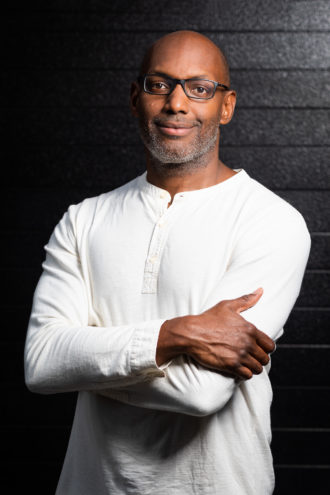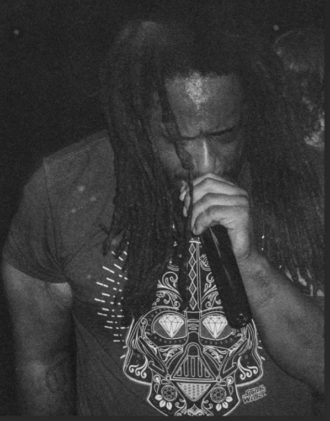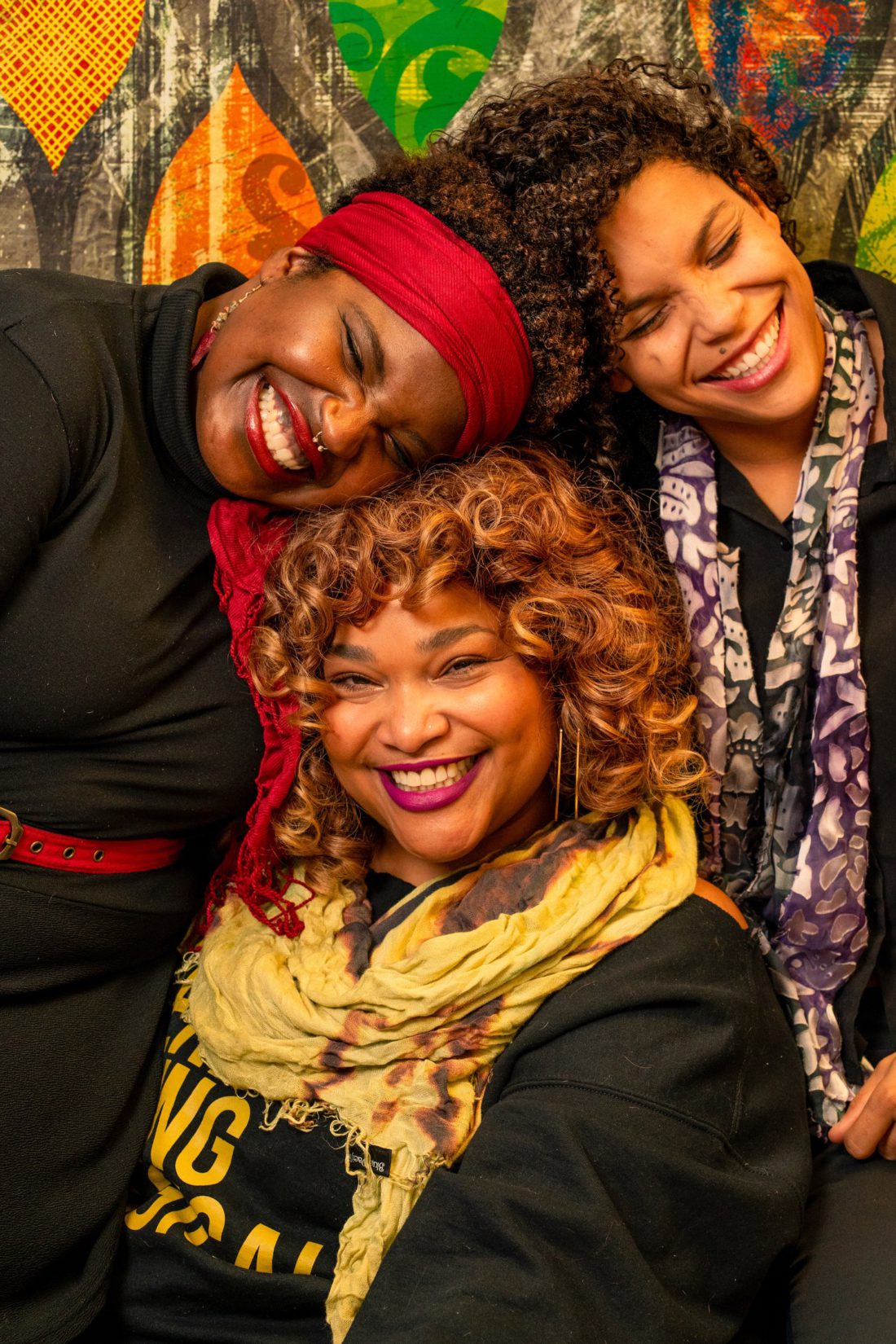Four years have now passed since the murder of George Floyd in Minneapolis.
In the days that followed his May 25 demise at the hands of Minneapolis police, the Black Lives Matter movement staged protests across the country and around the world, calling for reform and racial equity across numerous public and private sectors. Fueled by the uncertainty and introspection sparked by the COVID-19 pandemic, businesses, organizations and government entities pledged their allyship, promising to improve their racial equity practices to more accurately reflect the community at large.
These groups included arts organizations, both national and those based in Buncombe County. Xpress is checking in with local arts leaders of color to gauge the state of Asheville’s arts world as it relates to issues of equity and inclusion since summer 2020.
Sprouting seeds
Reggie Tidwell, owner of Curve Theory, an Asheville-based graphic design, branding and photography firm, notes that being a commercial artist shields him from some of the struggles that arts makers experience. But he’s still sympathetic to his creative peers’ plights and has accepted roles on various local committees and commissions to try and help improve their situations.
Among these was an endeavor by ArtsAVL that, responding to what Tidwell calls an “epidemic” of local artists getting priced out of the area, formed the Arts Coalition in 2021 to drive policy in a dozen key focus areas. Each focus area is represented by a leadership team member who meets with ArtsAVL staff every month.

Tidwell, the Professional & Business Services chair, views the formation of the ArtsAVL Directory in March 2023 as one tangible action in response to the nonprofit’s pledge for greater equity efforts. “Somebody that’s looking for an artist, a maker, a commercial artist [or] an illustrator can go into this directory, be able to tap into a whole community of creative folks and find local people to do the work or be able to commission for work, which is awesome,” he says.
“I think that’s the accessibility that we didn’t have in 2020. I’m seeing a lot of those things play out now that I know were promises — or at the very least, conversations that were happening around the pandemic.”
Since Floyd’s murder, Tidwell has noticed that creatives of color have been more sought after, including commercial artists like himself. He says he gets more calls randomly from employers specifically looking for a photographer or a designer of color.
“Within the last couple of years, that has been sort of a steady increase, which I think is most people trying to be more equitable with their resources,” Tidwell says. “And I think that’s not just an organizational thing but something that I’m seeing communitywide.”
Tidwell has also witnessed an encouraging trend with art galleries, both locally and nationally: some that didn’t prioritize equity before 2020 are beginning to feature creators of color. This shift is not only smart from a community-building standpoint, he says, but a business one as well.
“Equity and inclusion is top of mind for so many companies because they’re realizing that not being equitable and inclusive actually hurts their bottom line. Consumers are choosing companies that are sensible and that actually have a dedication to racial diversity and gender diversity,” Tidwell says.
“I think gone are the days where we’re supporting these all-white, all-male businesses. You see that and you’re just kind of like, ‘You know, I think this isn’t the most forward-thinking company. I would much rather go with someone else.’”
Model behavior
While equity efforts by white-led organizations are important, Black-led arts groups have also felt inspired to expand and improve their work over the past four years.
Zakiya Bell-Rogers, chair of Different Strokes Performing Arts Collective’s board of directors and the facilitator of the theater company’s post-show talkbacks, points to the theater company’s 369 Monologue and Short Play Festival, which concluded its second yearly edition on June 23, as one example of creating space for Black artists to express themselves.
According to Bell-Rogers, 369 focuses on hearing the voices of different people with an emphasis on accepting them for who they are and what they do.
“And it’s not a forced acceptance. It is a true acceptance,” she says. “If you are gay, straight, trans — whatever you are on that spectrum, you should be happy and celebrated how you feel you want to be celebrated. And if you are a person of color, you should be able to use your authentic voice and not be looked at as the token of whatever race you are.”
The sentiment of doing the work yourself aligns with the ethos of Davaion “Spaceman Jones” Bristol. The multifaceted Asheville chef and hip-hop artist co-founded Urban Combat Wrestling with Marcus “Mook” Cunningham in 2019.
“We’re kind of a reverse of the situation that it usually is: We’re two Black guys that run a company that is mostly white,” Bristol says. “A lot of people think about all-Black businesses and this and that, but we’re all human beings, right? So, I think that what we’re doing is kind of a model of how everybody can work together and everybody can get what they want.”
Bristol adds that UCW doesn’t purposely try to hire exclusively Black talent to make a statement. Instead, it employs its fans and “people we vibe with,” prioritizing group cohesion and talent.
“We try to concentrate on racial equity, but I think that sometimes in the mix of looking for racial equity, we forget good, commonsense things that work for humans,” he says. “Sometimes, in the search for equality, the accountability is left way on the other side. And if the two don’t meet, it won’t connect.”

Regarding initiatives from other local arts groups, Bell-Rogers applauds the equity efforts of some organizations over the past few years but has concerns about performers not being paid for their work.
“I think whenever there’s a push, everybody wants to be on the right side of history. But what people don’t understand is being on the right side of history comes with work,” Bell-Rogers says. “It’s not just putting your name down. It actually comes with work and labor and follow-through, so I think that’s where a lot of folks have fallen short.”
She notes that change occurs at different rates, but is most sustainable when an arts organization replaces a negative habit with a positive one.
“You’ve got to actively go out and seek Black plays and Black voices, and you have to pay people for their time,” she says. “If you’re receiving money for anything that you’re producing, you need to compensate those people who are making those things come off that page.”
For Bristol, finding opportunities in hip-hop is a challenge, both as a solo artist and in his duo Spaceman Jones & The Motherships with Cliff B. “MOTHER HOOD” Worsham. Since 2020, hip-hop-friendly venues The Mothlight and New Mountain closed, and The Boiler Room largely stopped programming rap shows. But Eulogy, The Odd and Sly Grog Lounge have picked up the slack.
“It’s different people doing events that include people from minority communities or minority genres of music — but it’s not more people,” he says. “There’s always some opportunities, but it’s not as widespread.”
Progress potential
Bell-Rogers, Tidwell and Bristol acknowledge that plenty of work still needs to be done in arts equity and are generally optimistic that positive change will continue to occur. Nevertheless, obstacles abound — even from those who’ve already made some significant gains.
“In society, people tend to rest on their laurels after they’ve made a little bit of progress. Once you do a little bit, it’s easy to start to get kind of comfortable,” Tidwell says.
“But I feel like there are a lot more companies that should be taking the time to really look at their makeup and see if it looks the way it should. Does it represent our community? Is it equitable? If somebody is looking at your company, are they going to have that feel-good feeling? And if you ask that question yourself and the answer is ‘no,’ then there’s obviously still a lot of work that needs to be done.”
Bell-Rogers feels that the local arts community remains split between groups that prioritize equity “because it’s the right thing to do” and those who don’t change their practices because inaction is easier. She adds that providing individuals with opportunities to experience an unfamiliar art form creates new lovers of that culture, benefiting the organization long-term.
“And so you have those people who will continue to [expand their audience],” she says. “And then you have those who are just comfortable with the ones that they have.”
However change arises, Bristol is adamant that handouts are not the solution.
“It never works. You can drive around housing projects and see the result of handing people sh*t,” he says. “I think it’s got to be based more on self-reliance than handouts. I think a lot of the racial equity community is kind of looking for a handout, and that ain’t gonna work. We’ve got to be accountable for what we’re doing and operate in a way that makes sense.”
Bristol adds that there’s a long way to go to achieve true equity and counteract inherent bias and racism in institutions. Tidwell is also playing the long game, but his patience may be about to pay off on one particular project.
In 2022, while Tidwell was on the City of Asheville’s Public Art and Culture Commission, he and his fellow committee members were walking around downtown, taking stock of potential sites for future installations. Pausing at the Jackson Building, a colleague noted how much foot traffic Pack Square Park receives and how few of these pedestrians make their way down to — or even know about — The Block, Asheville’s historically Black business district, located a mere block away.
Aware that prolific Black mason James Vester Miller worked on the Jackson Building and numerous other nearby structures in the early 20th century, inspiration struck Tidwell, and he proposed a huge mural of Miller for the wall of the parking deck next to the rear entrance of the Wortham Center for the Performing Arts. Expanding on this idea, Tidwell suggested having Black artists paint additional images on the parking deck pillars depicting the history of The Block. As people follow the visual story down the side of the the deck, they end up on The Block to see its newly remodeled YMI Cultural Center, Noir Collective art shop and other neighborhood cornerstones.
“I feel like something like that needs to happen — not just there but other areas in town,” Tidwell says. “You’ve got all these great things happening down there, and there’s such a disconnect. I think for that business community of color, it would be really nice if they could get this nice flow of traffic down there.”
The idea was met with enthusiastic approval by the other commission members. In Tidwell’s words, the plan “had steam for a little bit, and then it just fizzled out,” but in late May of this year, it resurfaced to an ambiguous extent in an announcement about the city’s Boosting the Block project, which includes plans for the construction of a physical gateway and cultural corridor between Pack Square and The Block. (Learn more at avl.mx/dui)
“I love that this project is happening,” Tidwell says. “There does not seem to be any mention of a mural specifically on the side of the parking deck along that corridor, but hopefully that will get rolled into this project — or, at the very least, some kind of visual way-finding that makes it irresistible to head down that corridor to The Block.”




Before you comment
The comments section is here to provide a platform for civil dialogue on the issues we face together as a local community. Xpress is committed to offering this platform for all voices, but when the tone of the discussion gets nasty or strays off topic, we believe many people choose not to participate. Xpress editors are determined to moderate comments to ensure a constructive interchange is maintained. All comments judged not to be in keeping with the spirit of civil discourse will be removed and repeat violators will be banned. See here for our terms of service. Thank you for being part of this effort to promote respectful discussion.